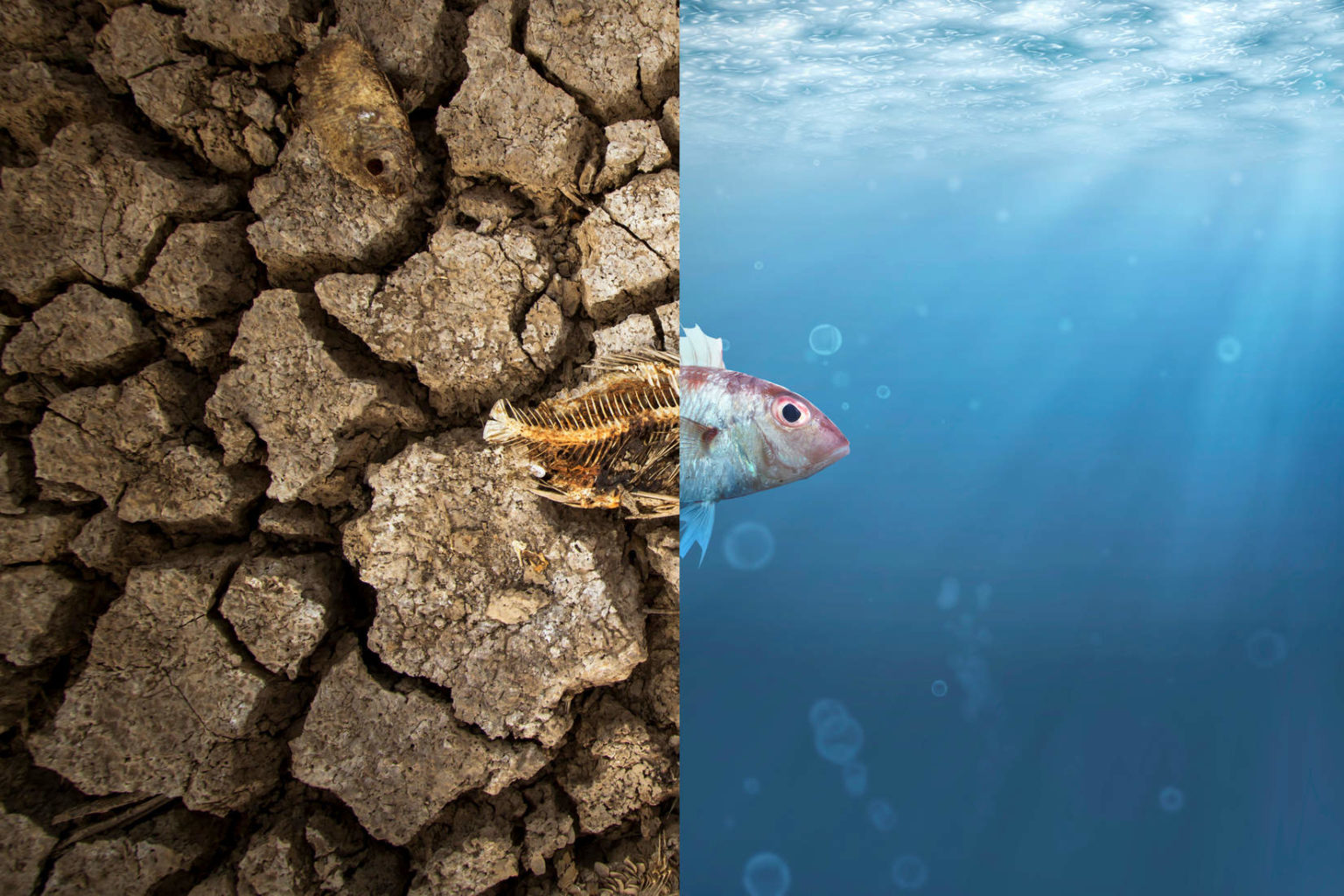By James Dyke, University of Exeter
The coffee tasted bad. Acrid and with a sweet, sickly smell. The sort of coffee that results from overfilling the filter machine and then leaving the brew to stew on the hot plate for several hours. The sort of coffee I would drink continually during the day to keep whatever gears left in my head turning.
Odours are powerfully connected to memories. And so it’s the smell of that bad coffee which has become entwined with the memory of my sudden realization that we are facing utter ruin.
It was the spring of 2011, and I had managed to corner a very senior member of the Intergovernmental Panel on Climate Change (IPCC) during a coffee break at a workshop. The IPCC was established in 1988 as a response to increasing concern that the observed changes in the Earth’s climate are being largely caused by humans.
The IPCC reviews the vast amounts of science being generated around climate change and produces assessment reports every four years. Given the impact the IPPC’s findings can have on policy and industry, great care is made to carefully present and communicate its scientific findings. So I wasn’t expecting much when I straight out asked him how much warming he thought we were going to achieve before we manage to make the required cuts to greenhouse gas emissions.
“Oh, I think we’re heading towards 3°C at least,” he said.
“Ah, yes, but heading towards,” I countered: “We won’t get to 3°C, will we?” (Because whatever you think of the 2°C threshold that separates “safe” from “dangerous” climate change, 3°C is well beyond what much of the world could bear.)
“Not so,” he replied.
That wasn’t his hedge, but his best assessment of where, after all the political, economic, and social wrangling we will end up.
“But what about the many millions of people directly threatened,” I went on. “Those living in low-lying nations, the farmers affected by abrupt changes in weather, kids exposed to new diseases?”
He gave a sigh, paused for a few seconds, and a sad, resigned smile crept over his face. He then simply said: “They will die.”
This article is part of Conversation Insights
The Conversation’s Insights team generates long-form journalism derived from interdisciplinary research. The team is working with academics from different backgrounds who have been engaged in projects aimed at tackling societal and scientific challenges. In generating these narratives we hope to bring areas of interdisciplinary research to a wider audience.
You can read more Insights stories here.
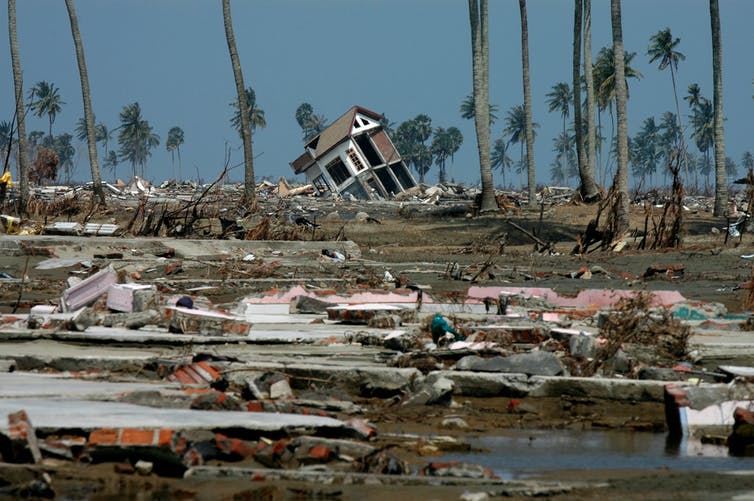
That episode marked a clear boundary between two stages of my academic career. At the time, I was a new lecturer in the area of complex systems and Earth system science. Previously, I had worked as a research scientist on an international astrobiology project based in Germany.
In many ways, that had been my dream job. As a young boy, I had lain on the grass on clear summer evenings and looked up at one of the dots in the night sky and wondered if around that star a planet orbited with beings that could look up from the surface of their world and similarly wonder about the chances of life being found within the unremarkable solar system we call home in the universe. Years later, my research involves thinking about how surface life can affect the atmosphere, oceans and even rocks of the planet it lives on.
That’s certainly the case with life on Earth. At a global scale, the air we all breathe contains oxygen largely as a result of photosynthetic life, while an important part of the UK’s national identity for some — the white cliffs of Dover — are comprised of countless numbers of tiny marine organisms that lived more than 70 million years ago.
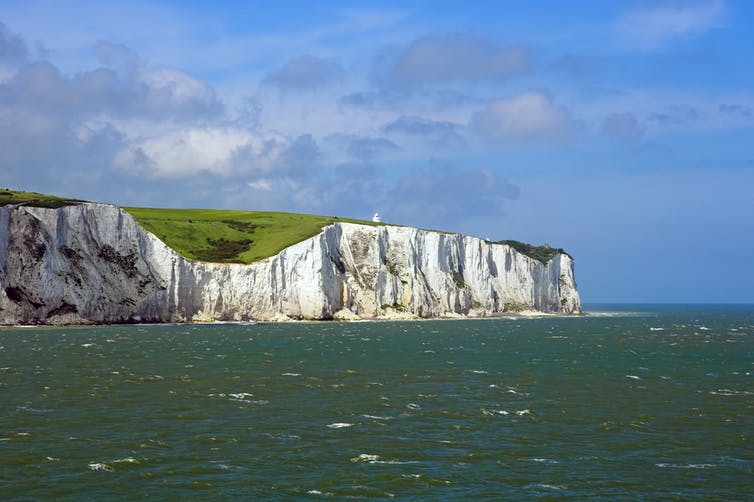
So it wasn’t a very large step from thinking about how life has radically altered the Earth over billions of years to my new research that considers how a particular species has wrought major changes within the most recent few centuries. Whatever other attributes Homo sapiens may have — and much is made of our opposable thumbs, upright walking and big brains — our capacity to impact the environment far and wide is perhaps unprecedented in all of life’s history. If nothing else, we humans can make an almighty mess.
Change Within a Lifetime
I was born in the early 1970s. This means in my lifetime the number of people on Earth has doubled, while the size of wild animal populations has been reduced by 60 percent. Humanity has swung a wrecking ball through the biosphere. We have chopped down over half of the world’s rainforests and by the middle of this century there may not be much more than a quarter left. This has been accompanied by a massive loss in biodiversity, such that the biosphere may be entering one of the great mass extinction events in the history of life on Earth.
What makes this even more disturbing, is that these impacts are as yet largely unaffected by climate change. Climate change is the ghosts of impacts future. It has the potential to ratchet up whatever humans have done to even higher levels. Credible assessments conclude that one in six species are threatened with extinction if climate change continues.
The scientific community has been sounding the alarm over climate change for decades. The political and economic response has been at best sluggish. We know that in order to avoid the worst impacts of climate change, we need to rapidly reduce emissions now.
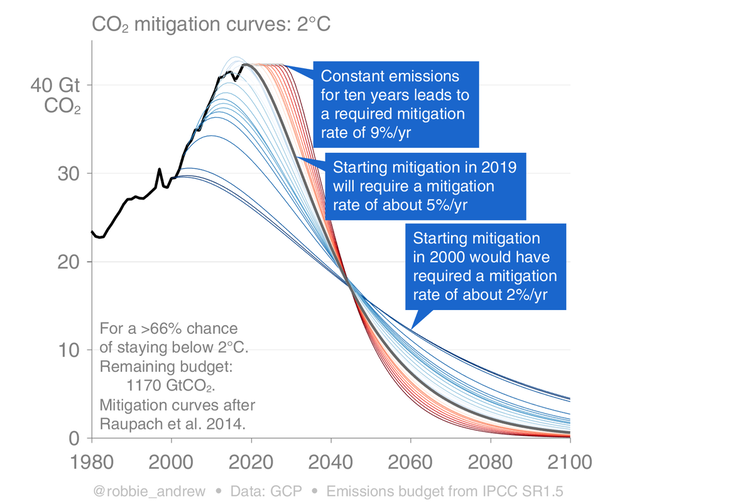
The sudden increase in media coverage of climate change as a result of the actions of Extinction Rebellion and school strike for climate pioneer Greta Thunburg, demonstrates that wider society is waking up to the need for urgent action. Why has it taken the occupation of Parliament Square in London or children across the world walking out of school to get this message heard?
There is another way of looking at how we have been responding to climate change and other environmental challenges. It’s both exhilarating and terrifying. Exhilarating because it offers a new perspective that could cut through inaction. Terrifying as it could, if we are not careful, lead to resignation and paralysis.
Because one explanation for our collective failure on climate change is that such collective action is perhaps impossible. It’s not that we don’t want to change, but that we can’t. We are locked into a planetary-scale system that while built by humans, is largely beyond our control. This system is called the technosphere.
The Technosphere
Coined by US geoscientist Peter Haff in 2014, the technosphere is the system that consists of individual humans, human societies — and stuff. In terms of stuff, humans have produced an extraordinary 30 trillion metric tons of things. From skyscrapers to CDs, fountains to fondue sets. A good deal of this is infrastructure, such as roads and railways, which links humanity together.
Along with the physical transport of humans and the goods they consume is the transfer of information between humans and their machines. First through the spoken word, then parchment and paper-based documents, then radio waves converted to sound and pictures, and subsequently digital information sent via the internet. These networks facilitate human communities. From roving bands of hunter-gatherers and small farming tribes, right up to the inhabitants of a megacity that teams with over 10 million inhabitants, Homo sapiens is a fundamentally social species.
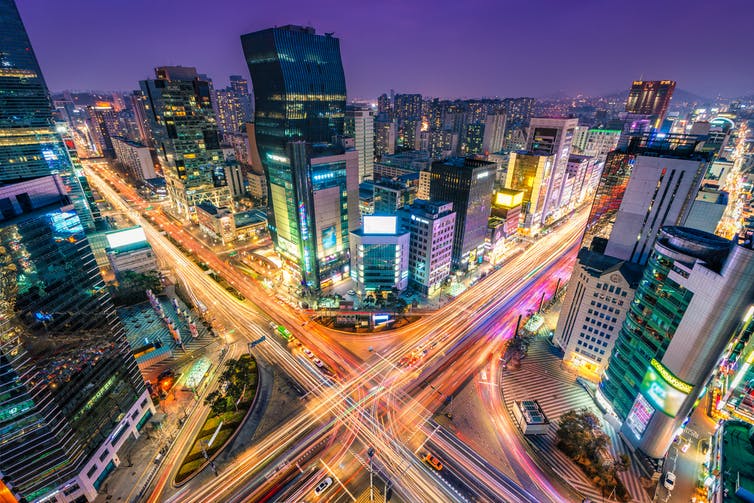
Just as important, but much less tangible, is society and culture. The realm of ideas and beliefs, of habits and norms. Humans do a great many different things because in important ways they see the world in different ways. These differences are often held to be the root cause of our inability to take effective global action. There is no global government, for a start.
But as different as we all are, the vast majority of humanity is now behaving in fundamentally similar ways. Yes, there are still some nomads who roam tropical rainforests, still some roving sea gypsies. But more than half of the global population now lives in urban environments and nearly all are in some way connected to industrialized activities. Most of humanity is tightly enmeshed into a globalized, industrialized complex system — that of the technosphere.
Importantly, the size, scale and power of the technosphere has dramatically grown since World War II. This tremendous increase in the number of humans, their energy and material consumption, food production and environmental impact has been dubbed the Great Acceleration.
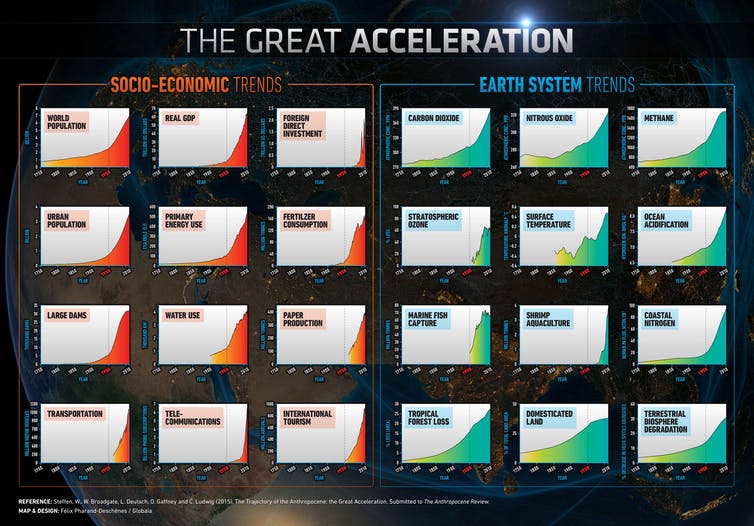
The Tyranny of Growth
It seems sensible to assume that the reason products and services are made is so that they can be bought and sold and so the makers can turn a profit. So the drive for innovation — for faster, smaller phones, for example — is driven by being able to make more money by selling more phones. In line with this, the environmental writer George Monbiot argued that the root cause of climate change and other environmental calamities is capitalism and consequently any attempt to reduce greenhouse gas emissions will ultimately fail if we allow capitalism to continue.
But zooming out from the toil of individual manufacturers, and even humanity, allows us to take a fundamentally different perspective, one that transcends critiques of capitalism and other forms of government.
Humans consume. In the first instance, we must eat and drink in order to maintain our metabolism, to stay alive. Beyond that, we need shelter and protection from physical elements.
There are also the things we need to perform our different jobs and activities and to travel to and from our jobs and activities. And beyond that is more discretional consumption: TVs, games consoles, jewellery, fashion.
The purpose of humans in this context is to consume products and services. The more we consume, the more materials will be extracted from the Earth, and the more energy resources consumed, the more factories and infrastructure built. And ultimately, the more the technosphere will grow.
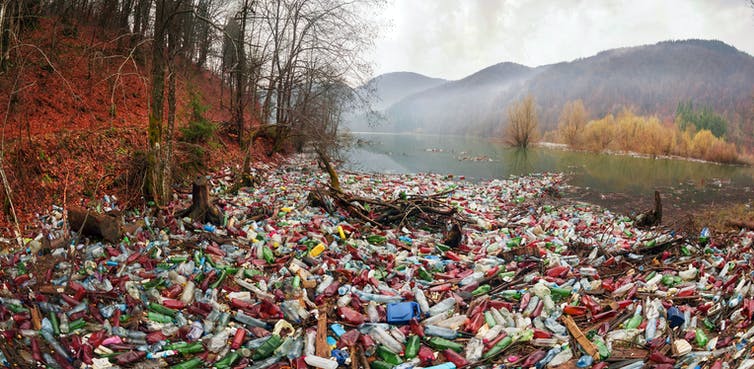
The emergence and development of capitalism obviously lead to the growth of the technosphere: the application of markets and legal systems allows increased consumption and so growth. But other political systems may serve the same purpose, with varying degrees of success. Recall the industrial output and environmental pollution of the former Soviet Union. In the modern world, all that matters is growth.
The idea that growth is ultimately behind our unsustainable civilisation is not a new concept. Thomas Malthus famously argued there were limits to human population growth, while the Club of Rome’s 1972 book, Limits to Growth, presented simulation results that pointed to a collapse in global civilisation.
Today, alternative narratives to the growth agenda are, perhaps, getting political traction with an All Party Parliamentary Group convening meetings and activities that seriously consider de-growth policies. And curbing growth within environmental limits is central to the idea of a Green New Deal, which is now being discussed seriously in the US, UK, and other nations.

If growth is the problem, then we just have to work at that, right? This won’t be easy, as growth is baked into every aspect of politics and economics. But we can at least imagine what a de-growth economy would look like.
My fear, however, is that we will not be able to slow down the growth of the technosphere even if we tried — because we are not actually in control.
Limits to Freedom
It may seem nonsense that humans are unable to make important changes to the system they have built. But just how free are we? Rather than being masters of our own destiny, we may be very constrained in how we can act.
Like individual blood cells coursing through capillaries, humans are part of a global-scale system that provides for all their needs and so has led them to rely on it entirely.
If you jump in your car to get to a particular destination, you can’t travel in a straight line “as the crow flies”. You will use roads that in some instances are older than your car, you, or even your nation. A significant fraction of human effort and endeavour is devoted to maintaining this fabric of the technosphere: fixing roads, railways, and buildings, for example.
In that respect, any change must be incremental because it must use what current and previous generations have built. The channelling of people via road networks seems a trivial way to demonstrate that what happened far in the past can constrain the present, but humanity’s path to decarbonisation isn’t going to be direct. It has to start from here and at least in the beginning use existing routes of development.
This isn’t meant to excuse policymakers for their failure of ambition, or lack of bravery. But it indicates that there may be deeper reasons why carbon emissions are not decreasing even when there appears to be increasingly good news about alternatives to fossil fuels.
Think about it: at the global scale, we have witnessed a phenomenal rate of deployment of solar, wind, and other sources of renewable energy generation. But global greenhouse gas emissions continue to rise. This is because renewables promote growth — they simply represent another method of extracting energy, rather than replacing an existing one.
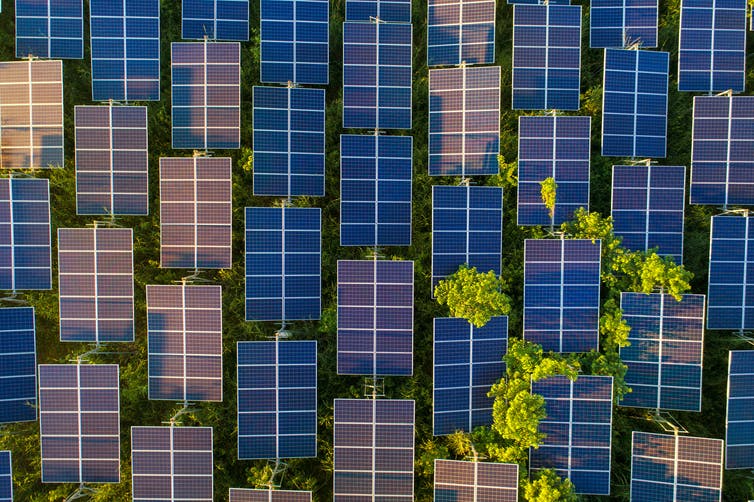
The relationship between the size of the global economy and carbon emissions is so robust that US physicist Tim Garret has proposed a very simple formula that links the two with startling accuracy. Using this method, an atmospheric scientist can predict the size of the global economy for the past 60 years with tremendous precision.
But correlation does not necessarily mean causation. That there has been a tight link between economic growth and carbon emissions does not mean that has to continue indefinitely. The tantalizingly simple explanation for this link is that the technosphere can be viewed like an engine: one that works to make cars, roads, clothes, and stuff — even people — using available energy.
The technosphere still has access to abundant supplies of high energy density fossil fuels. And so the absolute decoupling of global carbon emissions from economic growth will not happen until they either run out or the technosphere eventually transitions to alternative energy generation. That may be well beyond the danger zone for humans.
A Repugnant Conclusion
We have just come to appreciate that our impacts on the Earth system are so large that we have possibly ushered in a new geological epoch: the Anthropocene. The Earth’s rocks will bear witness to humans’ impacts long after we disappear. The technosphere can be seen as the engine of the Anthropocene. But that does not mean we are driving it. We may have created this system, but it is not built for our communal benefit. This runs completely counter to how we view our relationship with the Earth system.
Take the planetary boundaries concept, which has generated much interest scientifically, economically, and politically. This idea frames human development as impacting on nine planetary boundaries, including climate change, biodiversity loss, and ocean acidification. If we push past these boundaries, then the Earth system will change in ways that will make human civilisation very difficult, if not impossible, to maintain. The value of, say, the biosphere here is that it provides goods and services to us. This represents what we can literally get from the system.
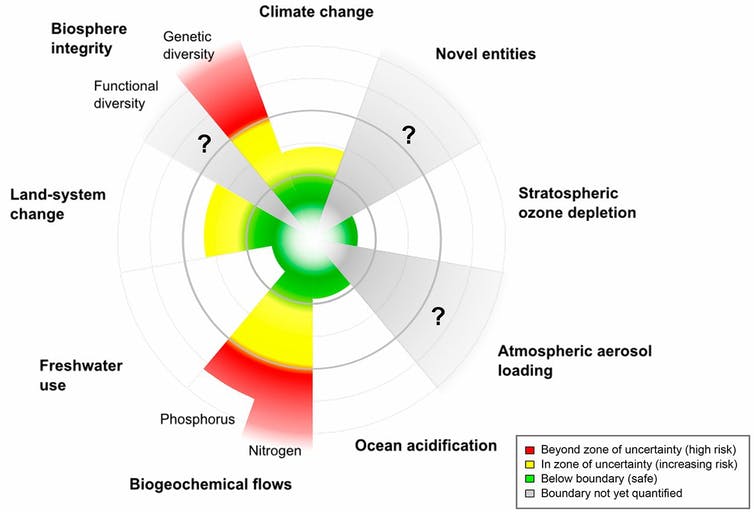
This very human-centric approach should lead to more sustainable development. It should constrain growth. But the technological world system we have built is clever at getting around such constraints. It uses the ingenuity of humans to build new technologies — such as geoengineering — to reduce surface temperatures. That would not halt ocean acidification and so would lead to the potential collapse of ocean ecosystems. No matter. The climate constraint would have been avoided and the technosphere could then get to work overcoming any side effects of biodiversity loss. Fish stocks collapse? Shift to farmed fish or intensively grown algae.
As defined so far, there appears nothing to stop the technosphere liquidating most of the Earth’s biosphere to satisfy its growth. Just as long as goods and services are consumed, the technosphere can continue to grow.
And so those who fear the collapse of civilisation or those who have enduring faith in human innovation being able to solve all sustainability challenges may both be wrong.
After all, a much smaller and much richer population of the order of hundreds of millions could consume more than the current population of 7.6 billion or the projected population of nine billion by the middle of this century. While there would be widespread disruption, the technosphere may be able to weather climate change beyond 3°C. It does not care, cannot care, that billions of people would have died.

And at some point in the future, the technosphere could even function without humans. We worry about robots taking over human’s jobs. Perhaps we should be more concerned with them taking over our role as apex consumers.
Escape Plan
The situation, then, may all seem rather hopeless. Whether or not my argument is an accurate representation of our civilisation, there is the risk it produces a self-fulfilling prophecy. Because if we believe we can’t slow down the growth of the technosphere, then why bother?
This goes beyond the question of “what difference could I make?” to “what difference can anyone make?” While flying less, cutting down on eating meat and dairy and cycling to work are all commendable steps to take, they do not constitute living outside the technosphere.
It’s not just that we give tacit consent to the technosphere by using its roads, computers, or intensively farmed food. It’s that by being a productive member of society, by earning and spending, above all by consuming, we further the technosphere’s growth.
Read more: Climate change: yes, your individual action does make a difference
Perhaps the way out from fatalism and disaster is an acceptance that humans may not actually be in control of our planet. This would be the vital first step that could lead to a broader outlook that encompasses more than humans.
For example, the mainstream economic attitude about trees, frogs, mountains, and lakes is that these things only have value if they provide something to us. This mindset sets them up as nothing more than resources to exploit and sinks for waste.
What if we thought of them as components or even our companions in the complex Earth system? Questions about sustainable development then become questions about how growth in the technosphere can be accommodated with their concerns, interests, and welfare as well as ours.
This may produce questions that seem absurd. What are the concerns or interests of a mountain? Of a flea? But if we continue to frame the situation in terms of “us against them”, of human well-being trumping everything else in the Earth system, then we may be effectively hacking away the best form of protection against a dangerously rampant technosphere.
And so the most effective guard against climate breakdown may not be technological solutions, but a more fundamental reimagining of what constitutes a good life on this particular planet. We may be critically constrained in our abilities to change and rework the technosphere, but we should be free to envisage alternative futures. So far our response to the challenge of climate change exposes a fundamental failure of our collective imagination.
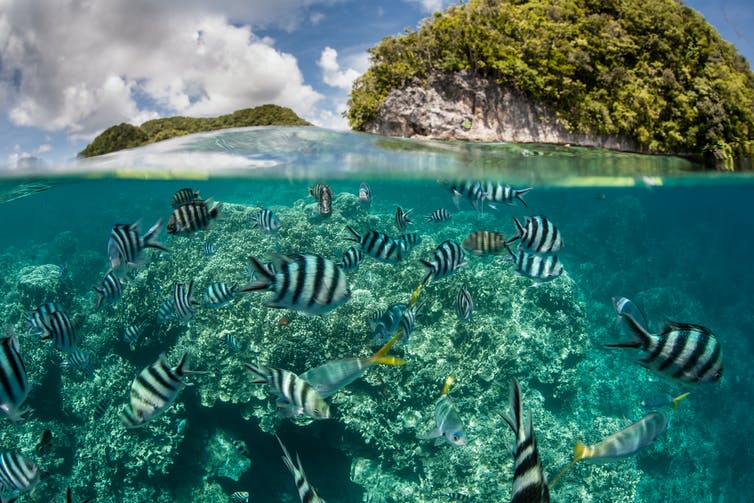
To understand you are in a prison, you must first be able to see the bars. That this prison was created by humans over many generations doesn’t change the conclusion that we are currently tightly bound up within a system that could, if we do not act, lead to the impoverishment, and even death of billions of people.
Eight years ago, I woke up to the real possibility that humanity is facing disaster. I can still smell that bad coffee, I can still recall the memory of scrabbling to make sense of the words I was hearing. Embracing the reality of the technosphere doesn’t mean giving up, of meekly returning to our cells. It means grabbing a vital new piece of the map and planning our escape.

James Dyke is Senior Lecturer in Global Systems at the University of Exeter.
This article is republished from The Conversation under a Creative Commons license. Read the original article.
Main image credit: shutterstock
Subscribe to our newsletter
Stay up to date with DeSmog news and alerts


